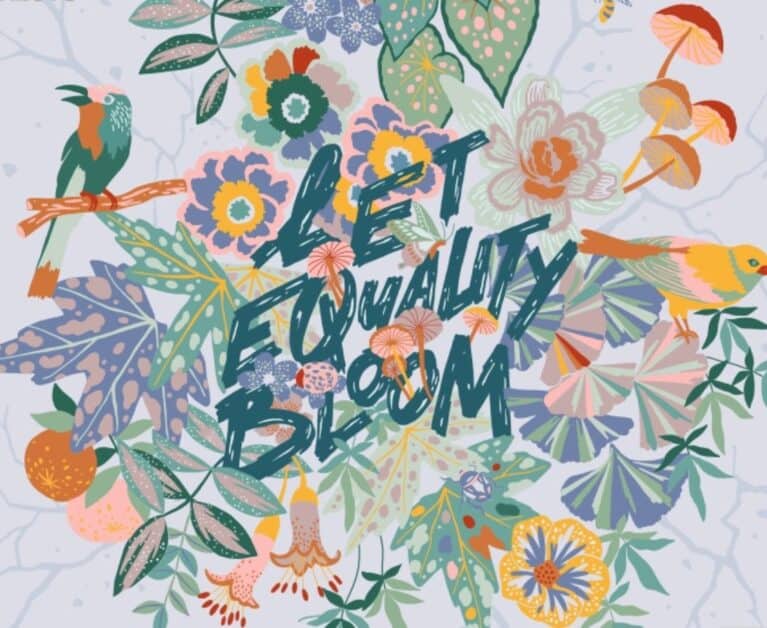Perspectives Film Festival: Breakthroughs in Cinema
PUBLISHED November 6th, 2012 02:20 am | UPDATED June 3rd, 2020 12:16 am
Those hungry for cinematic experiences that go beyond the onslaught of blockbusters from cinemas will be happy to hear that Perspectives Film Festival is happening right this week. The fifth installment brings yet another ensemble of thought-provoking films considered breakthroughs in their time and society. The curating from this annual affair is always excellent, bringing to us controversial films from all around the world unafraid to challenge existing boundaries and norms.
This year is no different. In fact, their chosen theme of ‘Sexuality’ couldn’t be timelier, considering the recent hoo-has over NUS student Alvin Tan’s sex blog and the ban of local filmmaker Ken Kwek’s Sex.Violence.FamilyValues. It’s time we open up to discussing issues that most of us are used to shying away from, and instead of hiding our discomfort under sensationalism and superficial reactions, we need to take steps towards understanding and acceptance.
These six films are thus chosen to offer well, perspectives, into the different facets of sexuality and its impact on elemental aspects of life, such as love, fear, psychology and death. There will definitely be no tiptoeing around sensitive issues here – only bold explorations.
Neither will there be any censorship present to mar the cinematic experience. In order to stay true to their aims and values, the organizers decided early not to show any films with cuts.
‘It was a decision we made as a team because the breakthrough quality was something that was very important to us. In fact, some of the scenes that could be cut were the highlight of the films and exhibited the breakthrough parts we desired’, Festival Manager Kenneth Teng says.
‘It was a rigorous process of picking the best films that we felt represented the various aspects of sexuality, had a higher chance of passing without cuts, and could spark off discussions on sexuality,’ he adds.
Not convinced yet? The films each boast accolades that include prestigious awards from Cannes Film Festival and Venice Film Festival, with the oldest produced all the way back in 1960 – a testament to the film’s lasting impact through decades of societal changes.
Read on for brief synopses of all six films below:
Zenne Dancer
Directed by Caner Alpher and Mehmet Binay, 2012, Turkey, 99 min, Digital Beta, English, Turkish & German with English subtitles
8 Nov 2012 | 8.00pm & 10 Nov 2012 | 1.30pm
Zenne Dancer is the first film in Turkey to depict honour killings related to homosexuality. The film also broke new ground in Turkish society by introducing to the public the plight of the homosexual population, raising awareness about the shame and torment that homosexuals are being put through. In particular, Zenne Dancer exposes the degrading screening process that homosexual men have to go through in order to be exempted from military service.
Awards: Antalya Golden Orange Film Festival (Won: Best Cinematography, Best First Film, Best Supporting Actor, Best Supporting Actress); Turkish Film Critics Association Award (Won: Best Film); Nuremberg Film Festival “Turkey-Germany” (Nominated: Best Film)
Note: Both Caner Alphere and Mehmet Binay, the directors of Zenne Dancer, will be present at the screening, which is the Asian premiere!
Belle de Jour
Directed by Luis Buñuel, 1967, France, 101 min, Rating TBC, 35mm, French with English subtitles
9 Nov 2012 | 8.00pm
Belle de Jour‘s breakthrough quality comes from its brazen exploration into eroticism, sexual deviance and sexuality, which challenged the audiences of its time. In line with social conventions, such bold cinematic forays are usually led by male characters; however, in Belle de Jour a sadomasochistic housewife serves as the strong and unforgettable lead character. What makes Belle de Jour truly an exploratory journey into eroticism and deviance is the feeling of intrigue and bewilderment shared by both Severine and the audience, as they journey together into the world of eroticism.
Awards: Venice Film Festival (Won: Golden Lion); Venice Film Festival (Won: Pasinetti Award, Best Film); Bodil Awards (on Best European Film); French Syndicate of Cinema Critics Award (Won: Best Film); BAFTA (Nominated: Best Actress)
The Rocky Horror Picture Show
Directed by Jim Sharman, 1975, United States of America, 100 min, Rating TBC, Format TBC, In English
9 Nov 2012 | 11.55pm & 10 Nov 2012 | 4.30pm
The Rocky Horror Picture Show is a film adaptation of the British rock musical stage play, The Rocky Horror Show. The show is the longest-running release in film history, and it is still a midnight staple in many cinemas in the USA since 1978. At the time of its release, the film provided a refreshing and quirky take on sexuality due to its interesting mash-up of the horror, science fiction and musical genre.
Awards Won: Academy of Science Fiction, Fantasy and Horror Films, USA (Won: Hall of Fame. Nominated: Best Horror Film)
Psssst…get tips on how to dress up for their special midnight screening here.
Fire
Directed by Deepa Mehta, 1996, India, 108 min, Format TBC, English & Hindi with English subtitles
10 Nov 2012 | 8.00pm
As the first movie in the Indian film industry to portray a lesbian relationship, Fire set off a flurry of riots and criticisms, including attacks by Hindu fundamentalists in some movie theatres, which led to screenings being halted. After a brief period of hostility, with the aid of free speech activists and film personalities campaigning for screenings to continue, the screenings were allowed to resume in cinemas. These conflicting reactions to the film are testament to how strongly it challenged India’s deep-seated cultural norms.
Awards: Barcelona International Women’s Film Festival (Won: Audience Award, Fiction Film) Chicago International Film Festival (Won: Silver Hugo, Best Actress); Mannheim-Heidelberg International Film Festival (Won: Special Prize of the Jury) Vancouver International Film Festival (Won: Popular Canadian Film) Verona Love Screens Film Festival (Won: Best Film)
The Housemaid
Directed by Ki-young Kim, 1960, South Korea, 111 min, Format TBC, In Korean with English subtitles
11 Nov 2012 | 1.30pm
Directed by Kim Ki-Young, The Housemaid represents a stylistic break from realism and is the finest film in a very brief Korean “Golden Age’ starting from 1960 that spanned all but two years. It is a horror-thriller classic that is still thematically relevant today and stands out as one of the top three Korean films of all time.
Special mention: koreanfilm.org (“consensus pick as one of the top three Korean films of all time”)
4 Months, 3 Weeks and 2 Days, Directed by Cristian Mungiu, 2007, Romania, 113 min, 35mm, Romanian with English subtitles
11 Nov 2012 | 4.30pm
4 months, 3 weeks 2 Days is a pitiless, violent story that in its telling becomes a haunting intellectual and aesthetic achievement. Directed by Cristian Mungiu, 4 months, 3 weeks and 2 days perfects the realist and minimalist approach that is characterised by films made in the Romanian New Wave, adding another gem to the already stellar line-up. Mangju’s meticulous camerawork in his film highlights how simple every day tasks seem especially difficult to accomplish in communist Romania.
Awards Won: Cannes Film Festival (Won: Palm d’Or); European Film Awards (Won: Best Film, Best Director); Goya Awards (Won: Best Film)
We also love that the festival team work extra hard in giving a fuller insight into individual films, with articles and links to director interviews available on their website. Given their diverse backgrounds, these nuggets of information allow a deeper understanding of each film’s exploration into sexuality.
So Nomads, there’s no more time to waste! Visit the Perspectives Film Festival website now here , or check out their Facebook page here for the latest updates and ticket giveaway contests!
Perspectives Film Festival runs from 8 – 11 November 2012 at National Museum of Singapore. Tickets priced at S$10 / S$8 for students only and are available via SISTIC here.


